To remove a surface-level scratch from your car, try using non-gel toothpaste. First, spread a thick layer of the toothpaste over the scratch with a cloth. Then, use a clean toothbrush to work the toothpaste into the scratch. When you've thoroughly brushed the area, rinse off the toothpaste, and the scratch should be gone.
First, sand the scratched area with 2000-grit sandpaper until the surface of your car feels rough. Next, spray the area you sanded with auto-body primer, and let it dry for 20 to 30 minutes. Once it's dry, spray the area with auto-body paint that matches the color of your car.
If nothing else is working, try using a car scratch remover kit. 3D's One Hybrid is an all-natural, water-based combination cutting compound and finishing polish that has a solid track record of removing swirls and light scratches. Suitable for application by hand, a random orbit polisher, or, in the hands of experienced users, a buffer, the formula works on all color finishes. Its combination of rubbing compound and sealant simplifies the process, eliminating the need to purchase two separate products. 3D's longstanding reputation also bolsters confidence, a crucial factor since subpar scratch removers can potentially damage vulnerable paint areas. Deep scratches, or primer scratches, extend down into the primer layer and often into the bare metal of your car.
Unless you're an experienced do-it-yourselfer, these deep types of scratches are best fixed by a professional repair shop. Types Of Car Scratches And Repairs ExplainedA simple surface-level scratch can be judged using your fingernail. If your nail is unable to catch it then it can be removed using a special rubbing compound.
This is done by first, washing the affected area properly using car soapy water and then cleaning it with a microfiber cloth. Now using a buffing pad a small amount of rubbing compound is applied. The compound is aggressively rubbed in on to the scratched area in a circular motion by applying little pressure.
The objective is to remove a bit of scratched clear coat. Keeping your car in tip-top shape on the outside is just as important as the inside. A professional car detailing typically includes polishing the paintwork to remove any scratches and swirl marks and buffing on a wax coat to protect the paint. Fortunately, you can use the Synchrony Car Care™ credit card for all your automotive needs, including professional detailing and repairing deep scratches. Apply now Be sure to use a light hand and don't polish too hard, as this could damage the clear coat. So that you can easily manage all your car maintenance—whether it's routine oil changes or unexpected repair work.
Conveniently manage your account online 24/7 with secure account access or download the mobile app. Not only that but unsightly scratches, scuffs and marks will affect your car's value if they're untreated when you want to sell it on. If you don't fancy doing it yourself, there are usually firms offering cheap mobile car scratch repairs nearby too, so there are a range of solutions available for sorting out scratches.
Scratches in car paint can be caused by a variety of things. Car accidents, vandalism, poor parking, and other parking lot mishaps are all common causes for a scratch or 2 on your perfect paint job. While scratches do detract from the appearance of your car, paying a body shop for a new coat of paint or even a small touch-up can be costly. You can try buffing out surface scratches with toothpaste, using a scratch removal product for small scratches, or sanding and repainting the area if the scratch is deep.
The paint job of a car is typically made up of three layers. The bottom layer acts as a primer for the second layer, which contains the color. The final layer on top is a clear coat that makes your car look shiny. At-home car scratch removers typically only work on scratches on the first two layers. This is because most removers are abrasive compounds that melt the paint around the scratch, which is then used to fill in the scratch.
If you have a major scratch that goes all the way down to the metal, we recommend sending your car to a professional. They will have better equipment to tackle the scratch and will be able to touch up the paint instead of just melting the paint around it. With deeper scratches, we recommend using 3M Scratch Remover. Once again, clean and dry the area thoroughly before beginning the repair process. Using a clean microfiber towel, apply the scratch removal liquid in a circular motion. Be sure to remove excess product from the vehicle when you are finished.
As always, wash and dry the damaged area before starting on a repair job. Especially with deeper scratches, it's important to wash out any dirt or dust before getting to work. This trick requires 2,000-grit sandpaper, sprayable primer, sprayable paint, a topcoat, and an optional sanding pad. These products are usually one-step, single application formulas, that allow quick and easy paintwork finish improvement. These products can be used for localized repair to a single scratch or can be applied like a conventional wax for overall car finish restoration. In January 2021 we applied car scratch removers to uniform scratches we'd created onto a piece of car panel so we could find out which one was the best.
How To Deal With Small Paint Chips On Car We conducted our tests using eight commercial products designed to remove shallow scratches, including Angelwax, Meguiars and T-Cut. Types Of Car Scratches And Repairs ExplainedA store-bought scratch repair kit can also be used to remove mild scratches. The kit contains a buffing pad and scratch remover solution. The surface is first washed so that there is no dust or debris lodged on the surface. Using the buffing pad a small amount of solution is rubbed on to the surface.
There have been contradicting opinions on using a scratch removing kit which may users reporting no results or decent results only for very mild scratched. Minor scratches only affect the clear coat layer of a car's finish. These are the easiest types scratches to repair, as they can be rubbed or polished out without needing to be repainted. If you can't see any metal underneath the scratch, it's probably a clear coat scratch. Scratch and swirl removers should be used to remove light scratches or surface blemishes, typically noticeable on the surface paint. Examples are the light marks from fingernails around door handles, light scuffs or when a finish loses its gloss.
These products are safe cleaners for removing general road film or swirl marks from automatic car washes. After sanding the surface, etching primer is applied to act as an adhesive medium for the paint. The surface is primer-ed and sanded in between processes two or three times while waiting for it to dry. The professional then matched the paint using a special pallet and the OEM paint code. Finally, multiple layers of clear coat are applied and the paint is protected and sealed using waxing and polishing compounds. This whole process takes a day or two depending on the extent of the damage.
There is nothing worse than discovering a new scratch on your car's surface... Whether it's a light scratch or swirls, it can be easily solved without the need for expensive repairs at a body shop. Check out our article below for a simple guide on how to remove scratches from car surfaces with the use of a few Turtle Wax scratch remover products. Clay bar kits bring more than mere scratch removal, enhancing the paint by cleaning and smoothing the surface.
Though using clay bars involves more work than many other products , this technique offers a deeper, more thorough cleaning and polishing effect. Using a clay bar first is a great way to identify any remaining deep scratches that may require a specialized product to remove. Each car scratch remover will have different application instructions. You'll want to review these instructions thoroughly beforehand so you have the proper tools to apply the product to your car. It's common for manufacturers to recommend cleaning the area before applying the repair kit, so you may want to also consider a car wash soap. Be aware that many of the scratches on our test car were very deep.
DIY car scratch removal products are only meant to resurface the top layer of clear coat, not fill in deep scratches. You'll see that some scratches are still visible after the test. However, the products removed most if not all of the smaller scratches on the vehicle. Repairing car scratches is important to prevent the body from rustingEvery scratch is different and requires your vehicle to undergo various processes for removing scratches from a car. Scratches like swirl marks may require multiple levels of repair, depending on the damage lurking on the car's body paint. After thoroughly cleaning the surface area, apply your toothpaste to a clean microfiber towel and buff the scratched area in a circular pattern.
Continue and wash off the excess toothpaste when finished. If the scratch remains, you can continue this process again two more times. Buffing any more than twice or three times risks damaging the vehicle's actual paint. Sometimes, if another car rubs against your car, you would notice that it sometimes leaves paint marks deposited on top of your car's paint.
This depends on the hardness of the object that rubbed against your car. A car with rubber bumper strips, for example, won't scratch your paint badly, but would leave part of its rubber or paint on your car. To remove such kind of scratches, use car shampoo and water first. If the scratch is stubborn, then use a little rubbing compound on a soft cloth and gently rub it over the scratch.
Don't rub too hard, as it will damage your car's clear coat. Once the scratch disappears, remember to wax polish the area to protect it. Our review team found some repair kits could handle both fine scratches and deeper damage to the car's surfaces, and most worked to lessen light scratches. For best results, customers should follow instructions from the manufacturer and have the necessary materials like a microfiber cloth for a car wash beforehand. Customers say that this product removes minor scratches and that deeper scratches are only visible if you look closely.
They report that it works best when used with Shine Armor's Fortify Quick Coat. Some customers say it's too expensive, especially compared to other car scratch removers that are more effective. Meguiar's car scratch remover takes first place because of its versatility and affordability.
It removes all kinds of paint imperfections, including scratches and swirls. You can also apply it to any paint finish using your hands, a polisher, or a buffer. If you have only light scratches on your car, you may only need something as simple as a polishing compound. Light scratches usually only affect the clear outer coat of the car's paint, so repairing them is reasonably easy. The objective is to even out the jagged edges of the scratch, helping it catch less light and blend back into the paint's surface.
A gently abrasive rubbing compound can usually achieve this. This is all about car scratch repairs and the most common types of scratches vehicles incur. It is better to take your car to a professional if the scratches are extensive and the damage is deep. However, you can save money by treating minor car scratches yourself with the solutions detailed above.
For our final test, we washed each zone with car shampoo and warm water the day after we'd applied the car scratch removers. We washed each zone until the scratches reappeared or a maximum of five times. The more washes the product survived, the higher it scored.
Angelwax Enigma AIO was the most expensive product we tested and one of the only car scratch removers available which the manufacturer boasts can also refine medium to deep scratches. Scratches, marks and dents in stainless steel requires pro-level repairs, with sanding, polishing and buffing needed to restore the shine. The big question when it comes to scratch and dent repair is how to fix deep scratches on a car. While some polishes will temporarily fill in the scratch, deeper scratches require the top layers of clear coat to be lightly sanded and then polished to a fine shine. Types Of Car Scratches And Repairs ExplainedA primer is another protection that manufacturers add to our car's body to give it stunning, shining and smoother surface.
This will require more time and expertise to get it fixed and recommend to paint the whole part to avoid uneven difference of paint. Small scratches can usually be rubbed out with polishing compound. The rule of thumb is that if your fingernail doesn't catch on the scratch, it's just a superficial clear coat scratch that can be smoothed out and made invisible. Scratches like these show because the light catches the side of a V-shaped groove in the clear coat.
The goal with light scratches is simply to smooth out that V into a wide valley, so it doesn't catch the light, effectively making the scratch invisible. If scratch removers don't do the trick, chances are a paint touch-up kit will leave nearly imperceptible traces of the repair. However, if you choose to repaint a section of your car, be aware that slight differences in hue and glossiness might be noticeable to the naked eye.
The removal of severe or extensive scratches and refinishing large areas are best left to a professional body shop. The system has you start by wetting the area and then sanding the scratch with the pad to build up a slurry. After that, you buff it with the purple compounding pad and rubbing compound. Finally, you buff the area with the black polishing pad and scratch remover compound.
The whole process was fairly simple, and the clear instructions that came with the kit made it easy. You can only get rid of minor car scratches with DIY solutions, besides, you can take your car to a vehicle scratch repairer for minor corrections as well. Squeeze a dab of rubbing compound onto a clean microfiber cloth or buffer pad and apply to the area of the scratch using small circular motions. In this step, you're looking for the scratch to disappear. If needed, add a bit more of the compound and continue rubbing, until you can't see the scratch anymore.
We also applied a medium and deep scratch to each section to see if each car scratch remover made a difference to these. Grab a clean cloth or pad We used a fresh microfibre cloth for each of the car scratch removers we tested. Some kits come with a foam applicator pad or you can buy these yourself separately.


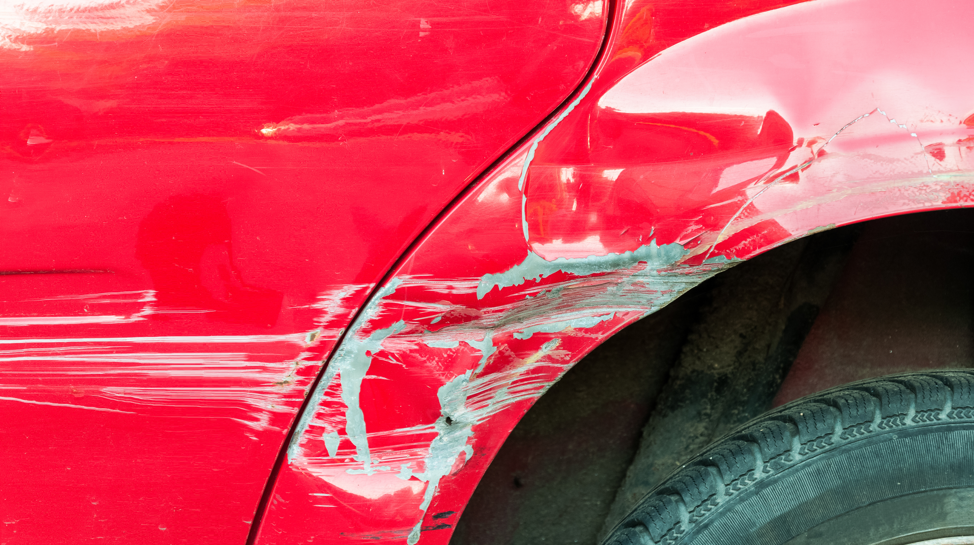









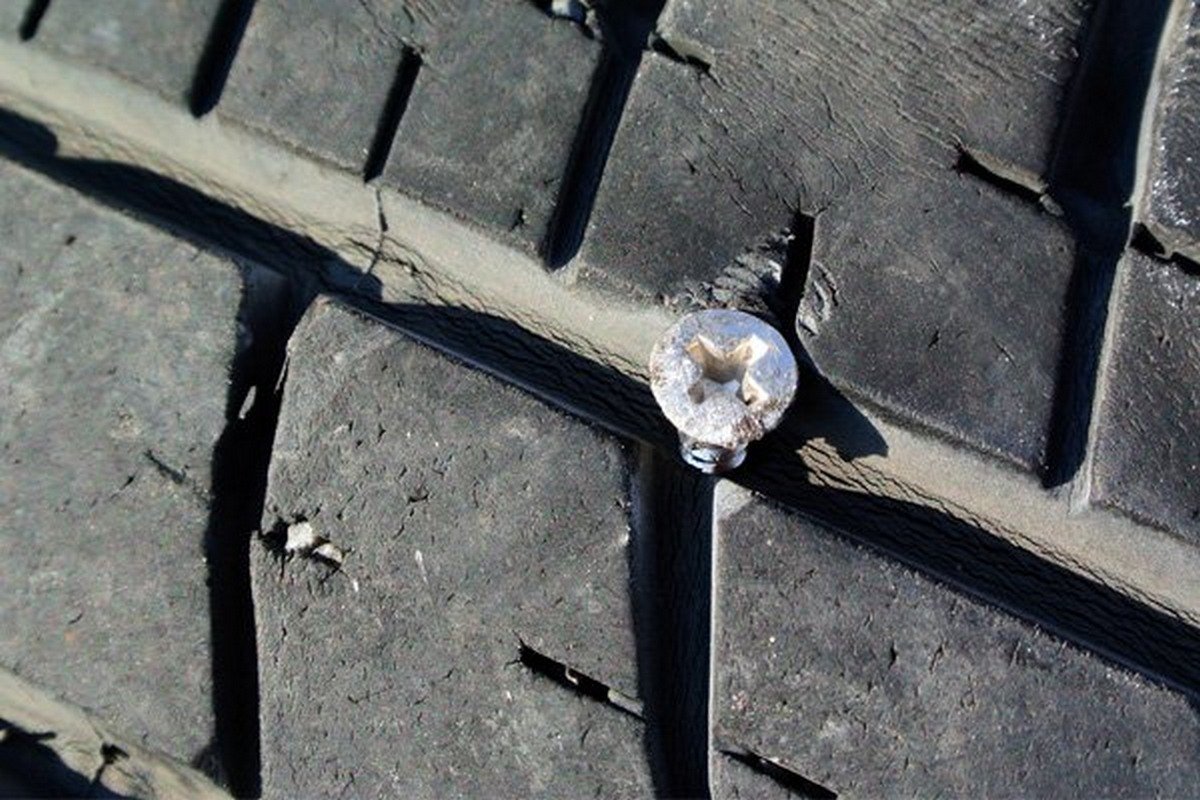



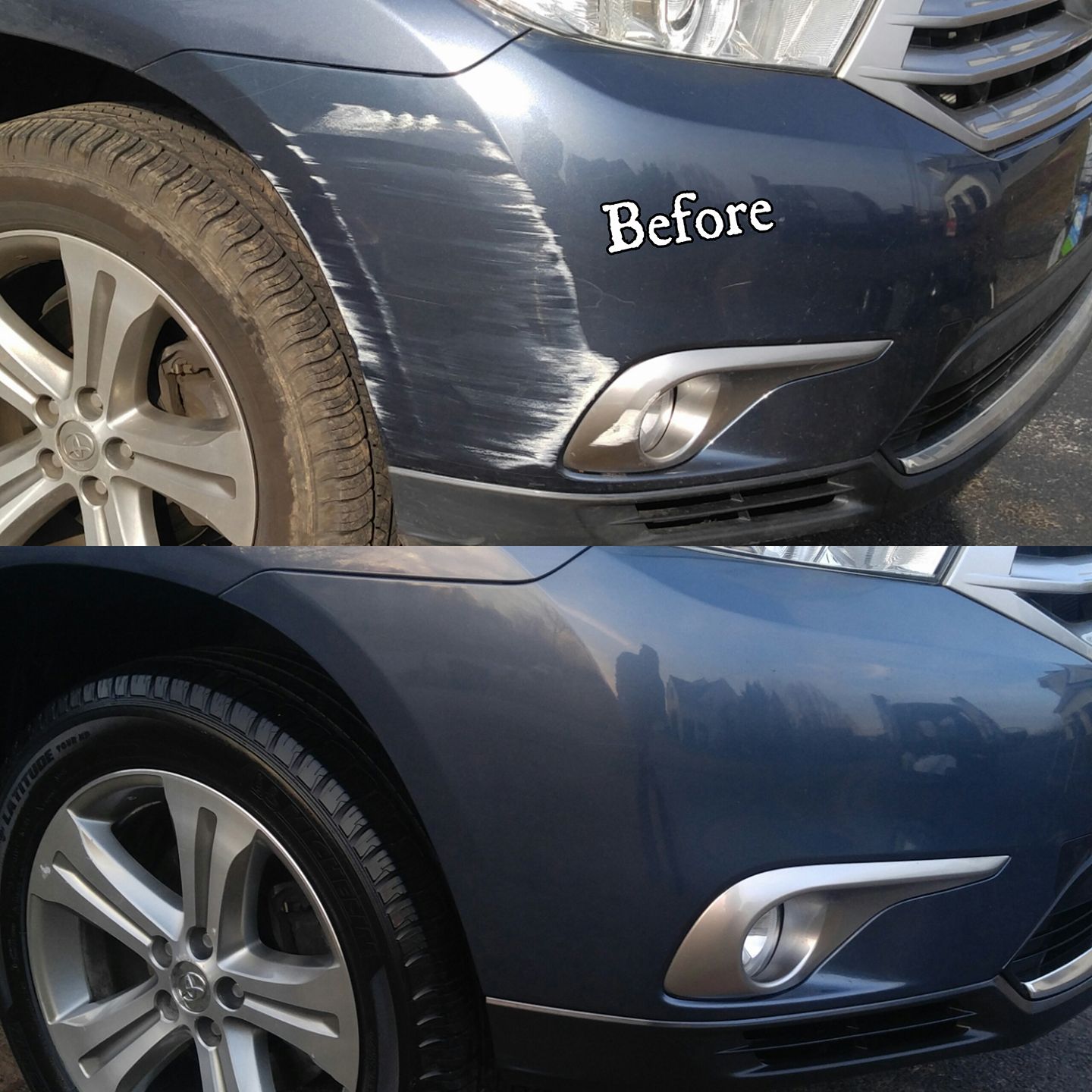






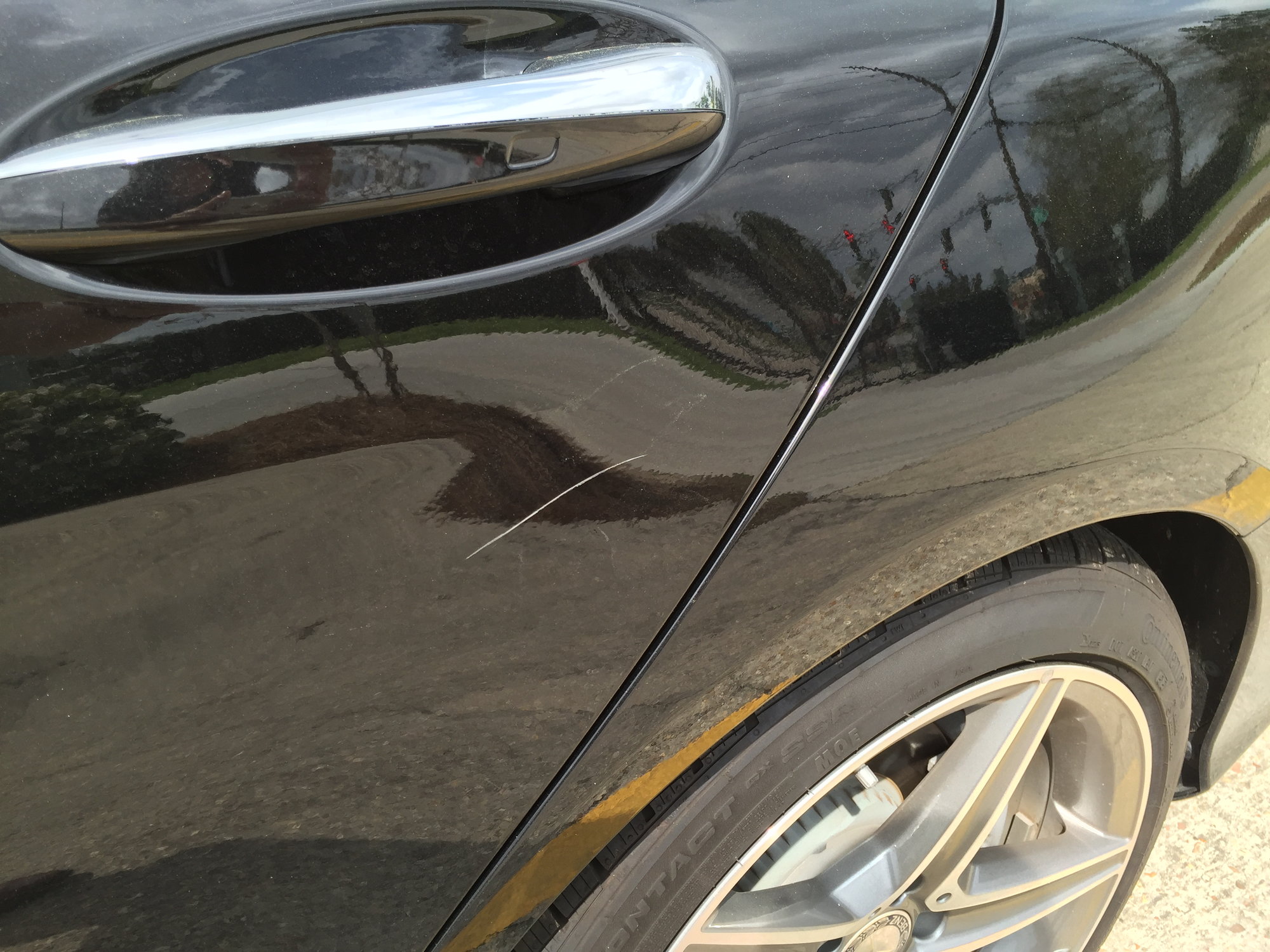



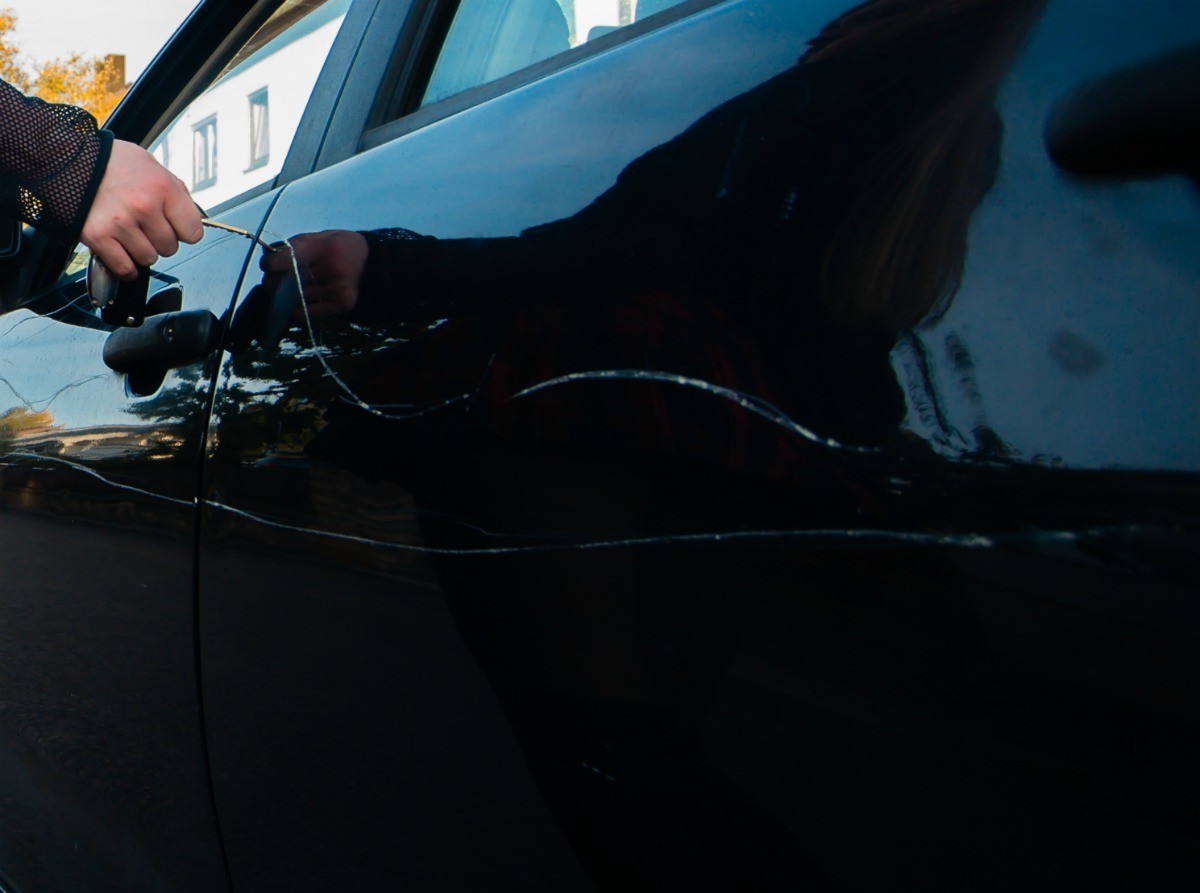


No comments:
Post a Comment
Note: Only a member of this blog may post a comment.